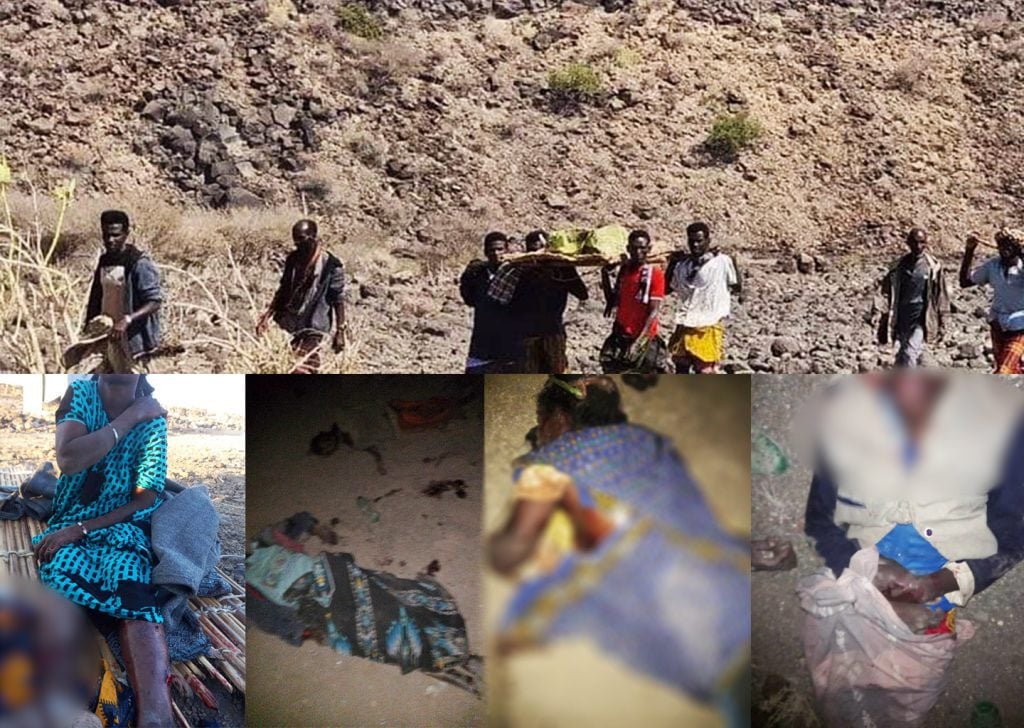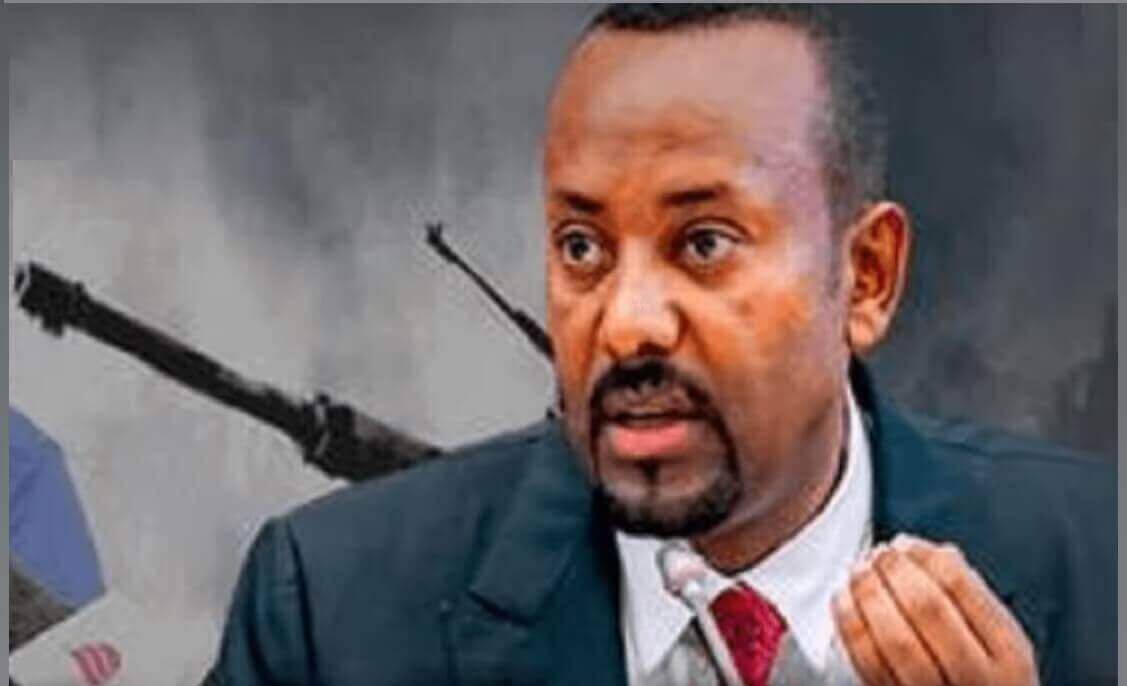 In an epochal scene unfolded today, Djibouti launched a drone attack close to the Ethiopian border, marking a vital shift in the region’s fragile peace dynamics. This provocative act has put the international community on high alert and raises pivotal questions about what future relations between the two African nations might entail. This report attempts to unpack the event’s circumstances, gauging its impact on regional politics, and considering the possible international ramifications. Navigate the intricate narrative around the geopolitical tensions of the Horn of Africa as we delve deeper to understand this deeply significant event.
In an epochal scene unfolded today, Djibouti launched a drone attack close to the Ethiopian border, marking a vital shift in the region’s fragile peace dynamics. This provocative act has put the international community on high alert and raises pivotal questions about what future relations between the two African nations might entail. This report attempts to unpack the event’s circumstances, gauging its impact on regional politics, and considering the possible international ramifications. Navigate the intricate narrative around the geopolitical tensions of the Horn of Africa as we delve deeper to understand this deeply significant event.
Background on Djibouti-Ethiopia Relations
Delving into the heart of the matter, the background of Djibouti-Ethiopia relations is a tapestry of historical ties, border disputes and evolving security dynamics. These aspects form a complex context that gives rise to the recent Djibouti’s drone attack near the Ethiopian border.
Historical Ties and Border Disputes
The intertwined fate of Djibouti and Ethiopia is as old as the nations themselves. Their close proximity and shared cultural and socio-economic ties have created a confluence of cooperation and conflict.
Economic and Political Relations
Historically, Djibouti and Ethiopia have had substantial economic and political relations. With Ethiopia being a landlocked country, its economic dependency on Djibouti’s ports is well recognized. On the flip side, Djibouti enjoys trade benefits and tide of investments pouring from Ethiopia, enjoying an economic symbiosis. Nevertheless, power politics sometimes tends to tip this balance, leading to strife and, at times, hostility.
Past Conflicts and Resolutions
Over the years, the borderline of these two nations has been a contested zone. Several border disputes, primarily revolving around resource control, have escalated to military confrontations. However, each conflict has been met with diplomatic efforts and a collective push for resolution, including negotiations, peace treaties and international arbitrations.
Current Security Dynamics
Fast forwarding to the present, the current security dynamics between the two countries also paint a volatile picture that can’t be ignored.
Role of International Stakeholders
The role of international stakeholders is significantly impactful in the region. Major powers and global organizations have often exerted influence, and at times interventions, to maintain stability. As Djibouti launches a drone attack near the Ethiopian border, the eyes of the global community turns towards the tension escalating in the Horn of Africa.
Regional Stability Concerns
For the Horn of Africa, regional stability is a prime concern. Instabilities like these pose a threat to not only the individual nations but the entire region. Growing militarization, territorial disputes and polarized geopolitics create a tension-filled landscape that can erupt anytime, causing far-reaching repercussions.
In conclusion, one can’t consider the drone attack as a stand-alone event. It’s the climax of a long and complex narrative of Djibouti-Ethiopia relations, filled with threads of historical ties, economic interdependencies, border disputes, international influence and regional stability concerns.
Details of the Drone Attack
The late-night silence near the Ethiopian border was shattered by an unexpected display of advanced warfare – a drone attack launched by Djibouti. But what were the specifics of this technological spectacle of destruction? Let’s delve into the details, starting with the timeline and execution, followed by the immediate impact and casualties.
Timeline and Execution
Location and Target
The drone attack transpired in the wee hours of Thursday morning, near the shared Djibouti-Ethiopian border. The specific target was a suspected militant base, nestled in the harsh terrain of the region.
Technology and Tactics Used
The technology employed was a clear display of Djibouti’s evolving military might. Advanced stealth drones, equipped with precision-guided munitions, executed the attack. The tactics involved launching the attack under the cover of darkness, utilizing the element of surprise to inflict maximum damage to the targeted militant infrastructure.
Immediate Impact and Casualties
Human and Material Losses
Unfortunately, like all instances of violent confrontation, the immediate aftermath of the drone attack witnessed human and material losses. Djibouti’s military reports claim the operation achieved ‘significant’ hits on the target, resulting in multiple casualties among the militants. Additionally, the infrastructural damage seems to be substantial.
Response from Affected Areas
The immediate response from the affected areas has been one of shock and disturbance. With communications being disrupted due to the drone attack, precise details about civilian casualties and damages to public amenities are still forthcoming.
While the echoes of the explosions dissipate and dust settles, one thing is clear – this drone attack marks a significant escalation in Djibouti’s offensive strategy near the Ethiopian border. As the world watches, the area clings to a tense anticipation of what may follow.
Reactions to the Drone Attack
In response to the drone attack near the Ethiopian border, political spheres have been awash with commentaries and rebuttals. The reactions have primarily been oriented around Djibouti’s official statement and the subsequent response from Ethiopia.
Djibouti Government’s Statement
Following the drone attack, the Djibouti government was quick to issue an official statement. This document served to shed light on the underlying reasons for such drastic measures and their preventative plans moving forward.
Official Justifications
In its statement, the Djibouti government justified its actions by drawing attention to an alleged build-up of hostile activities near the border. This, they claimed, was a direct threat to their sovereignty and their people’s safety. According to them, the drone attack emerged as necessity, not an act of aggression. They reiterated their commitment to maintain peaceful relations with Ethiopia, assuring that this move was purely a defensive mechanism.
Measures to Prevent Escalation
Djibouti further outlined the steps they were taking to prevent any further escalation of the situation. This included maintaining open channels of communication with Ethiopia, seeking diplomatic intervention from international stakeholders, and deploying additional peacekeeping forces along the border to deter any retaliatory action.
Ethiopian Response
The Ethiopian government’s response to the drone attack took on a two-pronged approach—focusing on immediate comments from the military and the government, and rallying for international support.
Government and Military Reactions
In Addis Ababa, the government reacted with surprise and condemnation. Ethiopia’s Foreign Ministry labelled the drone attack as an “unprovoked aggression” and urged the Djibouti government to respect international laws and sovereignty. The country’s military high command also assured its citizens that they were ready to respond to any threat, highlighting their dedication to national security.
Calls for International Support
Ethiopia has called upon international organizations such as the African Union and the United Nations to investigate the drone attack and mediate between the two nations. They have emphasized the importance of regional stability and have pleaded for international support to deescalate the situation and establish peaceful negotiations.
International Implications
The unfolding events following Djibouti’s drone attack near the Ethiopian border not only affect individual nations but the global community as a whole. The reactions of international entities add another layer of complexity to an already concerning situation.
Role of Regional Organizations
Initiatives and responses from regional organizations such as the African Union and United Nations have significant potential to shape the outcome of this crisis.
African Union’s Involvement
The African Union (AU), due to its geographic proximity and vested interest in regional stability, has inevitably been drawn into the matter. The AU has a history of mediating in regional conflicts and working towards collective security objectives. In this case, the AU has expressed deep concern about escalating tensions and urged both parties to exercise restraint. AU leaders have advocated for an immediate cessation of hostilities, promoting peaceful negotiations as the only viable solution.
UN’s Role in Mediation
Similarly, the United Nations (UN), with its global mandate for peacekeeping, has a significant part to play. UN representatives have been rallying support among member nations to endorse a resolution that advocates peace talks. Leveraging its wide-reaching influence, the UN has urged nations to avoid aggressive posturing, which could further exacerbate the situation.
Global Reactions and Diplomatic Efforts
Reactions from the international community and diplomatic efforts to navigate the crisis are vital factors influencing the course of events.
Statements from Major Powers
The responses from major powers of the world have varied, though mostly echoing calls for peace. Powerful nations like the USA, Russia, China, and several European countries have issued statements urging for a diplomatic resolution. There have been expressions of concern about regional stability and human rights implications, highlighting that the drone attack near the Ethiopian border could spur a broader conflict.
Potential Impact on Foreign Relations
The drone attack and ensuing events could potentially impact foreign relations for both Djibouti and Ethiopia. There may be reputational risks, political ramifications, and shifts in alliances. In the delicate game of international relations, actions such as this drone attack can reshape the geopolitical landscape, influence foreign policy, and determine the fate of bilateral ties.
In conclusion, the sheer breadth of international implications underscores the seriousness of the situation. The world is watching closely, hoping for a peaceful and quick resolution of this conflict.
Future Prospects and Resolution Strategies
In the aftermath of the drone attack near the Ethiopian border, the focus now shifts to future prospects and resolution strategies. A myriad of factors will undoubtedly influence the direction of Djibouti-Ethiopia relations moving forward, including peace talks, negotiations, and regional collaboration.
Peace Talks and Negotiations
Peace talks and negotiations are critical in the prevention of conflict escalation. It’s imperative to have solid measures in place to manage and mediate potential future disputes.
Proposals for Ceasefire
A vital immediate goal is to achieve a ceasefire. Djibouti, Ethiopia, and international stakeholders alike should put forth proposals that advocate for the cessation of hostilities and promote peace. It would essentially involve the parties agreeing to stop all forms of aggression, with terms and conditions clearly articulated and mutually agreed upon.
Long-term Peace Plans
Equally as significant as achieving a ceasefire, however, are long-term peace plans. Such plans are crucial for maintaining stability over a prolonged period. These strategies should look beyond just resolving the immediate conflict but fostering a robust system that ensures sustainable peace.
Strengthening Regional Cooperation
Building a future without conflicts like the recent drone attack also involves strengthening regional cooperation. Intense engagement and collaboration among neighboring countries provide a productive platform for preventing similar incidents.
Joint Security Initiatives
One potential avenue for this collaboration is joint security initiatives. Such initiatives allow for shared intelligence, collaborative military exercises and overall, a more coordinated approach to handle security threats in the region.
Economic Collaboration Opportunities
Beyond security, the future holds opportunities for economic collaboration between Djibouti and Ethiopia. Cooperation in fields such as trade, infrastructure, and investment can not only contribute to a diplomatically healthier region but also stimulate economic growth and development, which is beneficial for all parties.
In conclusion, while the drone attack near the Ethiopian border has momentarily strained relations, the path to resolution lies in robust peace talks, concrete ceasefire proposals, long-term peace plans as well as economic and security cooperation in East Africa.


